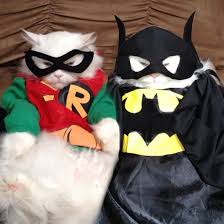 Often, the characters we create to tell our stories seem to be average people—just like you and me. Maybe the story opens with this person sitting looking out a window. But is this Average Annie the sort of person who makes readers care?
Often, the characters we create to tell our stories seem to be average people—just like you and me. Maybe the story opens with this person sitting looking out a window. But is this Average Annie the sort of person who makes readers care?
Writing Tip for Today: In order to elicit sympathy, our protagonists must have certain qualities. Here are some to consider:
Extraordinary Ordinariness
When we create characters whom we believe will arouse a reader’s sympathy, writers often believe an ordinary person will be the most relatable. But is this really true? Donald Maass, in The Fire in Fiction, says, “A reader’s heart does not automatically open just because some average schlemiel stumbles across the page.” Sure we need protagonists who are enough like the reader to capture their sympathy, but as Maass argues, we don’t necessarily want to spend time with unremarkable people. We’d rather be with those persons for whom we’d clear our calendar, those individuals who inspire us, who we’d secretly love to be more like or at least get to know. This extraordinary ordinariness is what we all would be wise to strive for in creating a protagonist who will hook readers.
Whiners of the Past
Another flaw writers can fall into with their protagonists is to build the story completely on what happened in the past. Many successful stories deal with the past, sure, but slush piles are also full of characters who should have let go but can’t or won’t. If the “now” of the story isn’t interesting enough to set the bulk of the story, then maybe it’s happening at the wrong time. The “burdened by the past” protagonist can be successful but to paraphrase Maass, “if past secrets and calamities are much more dramatic than present action it will be difficult to construct a compelling narrative.” Make sure your present day protagonist can instill sympathy based on her current wants and needs and not solely on stuff that happened years ago. Memoirists in particular can be saddled with an uninteresting story if all the good stuff is presented in back story, while the present-day events are a snooze. Your character must long to bring the past to light and find a way to move beyond it.
Heroes and Greatness
It would seem that we need protagonists who are principled, who are not petty or whiny, who rise above the madding crowd. Great people seldom leave the world unchanged. But writing a more perfect character has its own pitfalls. if your protagonist is great, you’ll have to find a way to also assure readers of this character’s vulnerabilities. As Maass advises, if we write a hero or heroine for whom we can cheer, these “paragons of perfection” must possess humanity. Add in quickly your hero’s Achilles’ heel, reinforce it throughout the story and readers will be more likely to believe in that person because she is real. Just like you and me. Only better. A protagonist who achieves these things is likely to be a character worthy of readers’ time.





In my novel, I noted that my protagonist had no “faults.” Your post alerted me to necessary revision. The guy must possess some shortcomings. Thank you.
Dear Robert,
You are very welcome! Write On!
Linda
While it s easy to assume that good or worthy characters must all have a similar moral compass, the truth is that this part of an individual is truly unique. How a person was raised, who and what influenced them, and the positive and negative lessons learned along the way will shape their moral code. This is true of life, and so should be true in fiction.
A thoughtful take for sure. Thanks for dropping by–and keep writing!
All the Best,
Linda